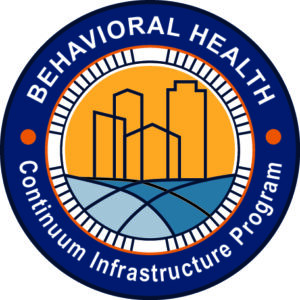In order to fully execute a BHCIP Program Funding Agreement (PFA), how do we proceed when the awarded project only pertains to a portion of the existing property/structure in place?
BHCIP PFAs require execution of a Declaration of Restrictions (DoR) and Performance Deed of Trust (PDoT) before a sponsor can begin to draw down awarded grant funds. The DoR and PDoT will encumber the entire property where the BHCIP project is located. The following options may be considered by sponsors in instances when the sponsor […]
Is my project required to conform with CEQA guidelines, or is it exempt?
Applicants should consult with their legal counsel and applicable local agencies regarding the California Welfare and Institutions Code section 5960.3(a)(b)(c). DHCS is not responsible for determining whether an awardee qualifies for CEQA exemption. As per the program funding agreement (contract), the applicant will be responsible for providing copies of all appropriate building permits and/or notice […]
How will the program funding agreement (PFA), or contract, that will be issued for the BHCIP Round 4: Children and Youth grants compare to the sample Round 3 PFA on the BHCIP website?
While the bulk of this round’s PFA will echo the Round 3: Launch Ready PFA, there are two key differences: 1. Unlike the previous round, Round 4: Children and Youth does not include any federal funding. Therefore, there is no need for federal compliance requirements in the PFA, as there was in Round 3. 2. […]
If we are including the costs of property acquisition in our budget, do we need to provide a certified appraisal of the property at this time? Who pays for the certified appraisal?
A certified appraisal of the property is required at the time of the award application if you are using land as the source of your match or if you are acquiring a new property. The certified appraisal must be provided before the grant award is finalized. The cost of the appraisal is the responsibility of […]
When will the BHCIP Round 4: Children and Youth funding awards be announced?
DHCS anticipates BHCIP Round 4: Children and Youth funding award announcements by December 2022. For information and updates, please visit the Round 4: Children and Youth webpage: Children and Youth – BHCIP (buildingcalhhs.com).
The RFA requires applicants to provide a “sustainable business plan with (pro forma) projections of future objectives and strategies for achieving them.” Can you please explain what that means?
A sustainable business plan provides an outline of the business approach and structure of how the business will be operated and sustained over time—in this case, for the life of the funding. It is essential that all BHCIP applicants demonstrate that they have a plan for how they will absorb the expanded growth of their […]
Please define the term “expansion” as related to BHCIP funding.
BHCIP expansion is considered the addition of new behavioral health service capacity only (beds/slots). Expansion does not include relocation/rebuilding/repurposing existing behavioral health service capacity. BHCIP funding is not preservation funding. Applications that propose to use BHCIP funding to move locations into a new facility, decrease current BH capacity, or support other non-capacity expansion activities will […]
What are the requirements of the 30-year use restriction language specified in the BHCIP Round 4 Request for Applications (RFA)?
Welfare and Institutions Code Section 5960.15(d) specifies that an entity receiving BHCIP grant funds operate services in the financed facility for the intended purposes for a minimum of 30 years. Grantees will be required to execute contracts with DHCS to ensure that the BHCIP-funded facilities continue to be utilized for the intended purposes listed in […]
Are the grant funds covering services for the project once the facility is constructed? If so how long is the term once awarded?
Grant funds do not cover services, nor can services be used as a match.
Are mobile or portable units (school-linked) considered an eligible infrastructure project under BHCIP Round 4: Children and Youth?
No. School-linked mobile or portable units are not eligible for Round 4: Children and Youth grant funding.
